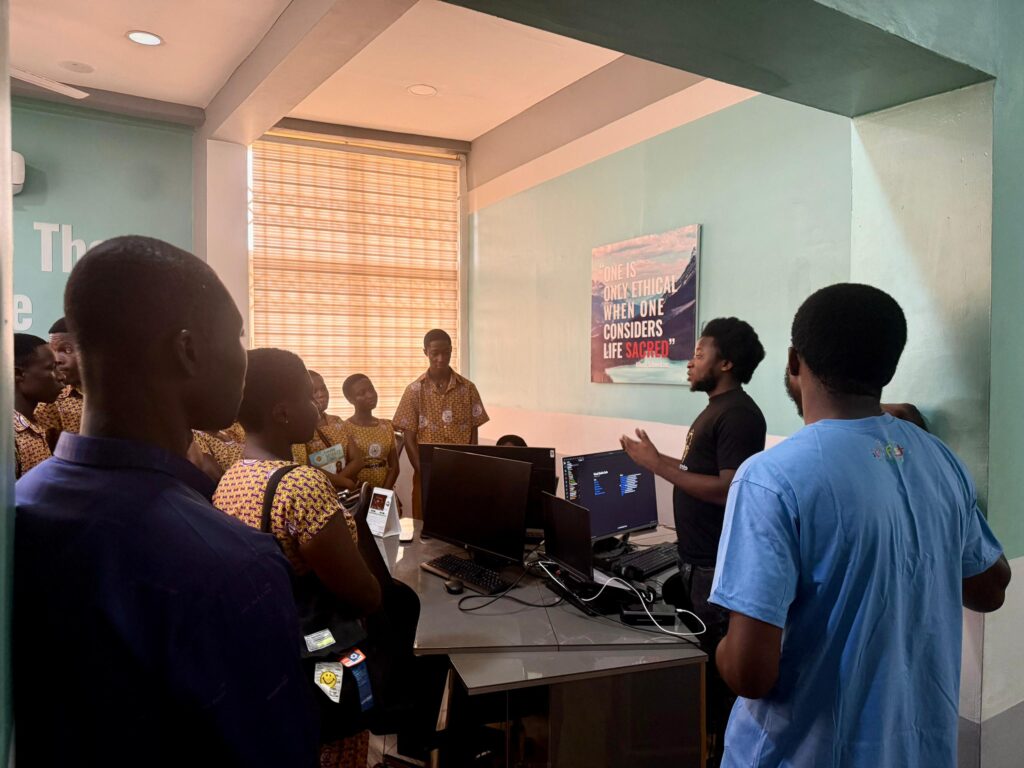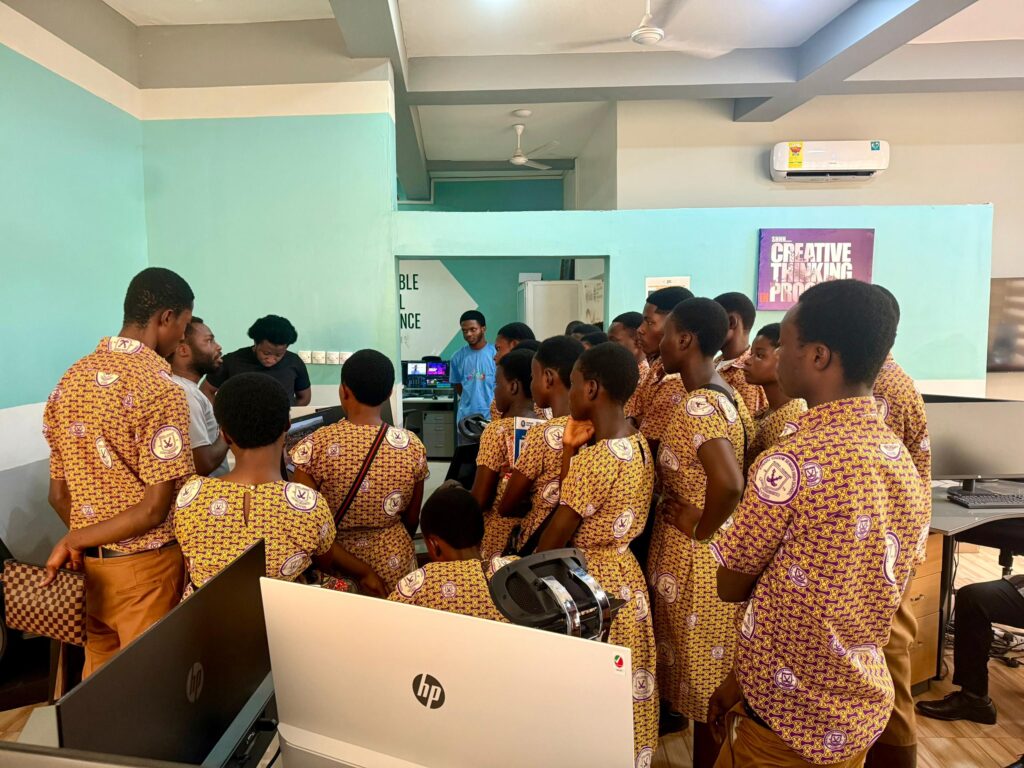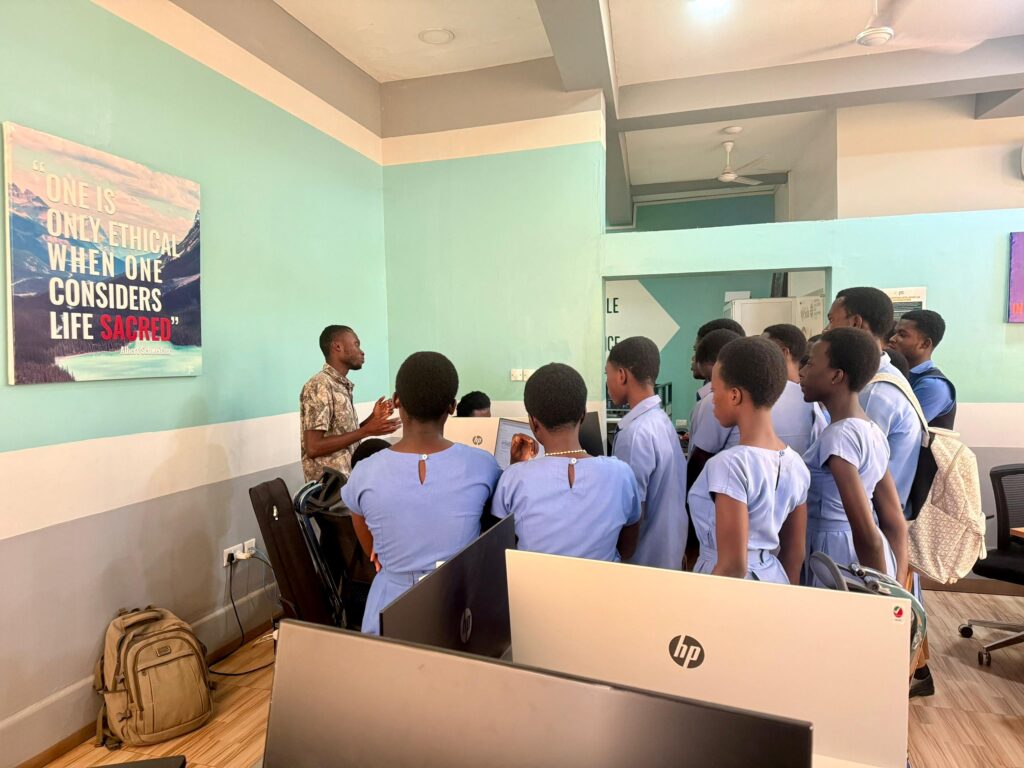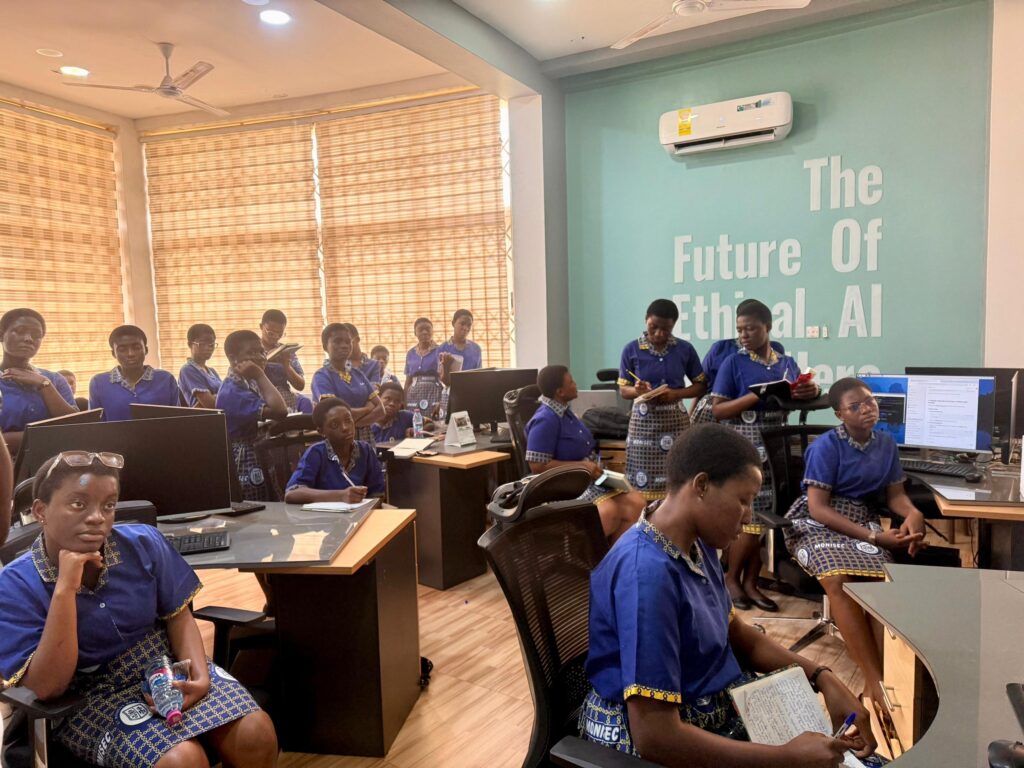On Friday, 4th July 2025, students from Konadu Yiadom Senior High School, Mankranso Senior High School, and St. Monica’s Senior High School visited the Responsible AI Lab (RAIL) as part of Scifest held at the Allotey Auditorium of the College of Science, KNUST, to ignite the passion for science among pre-tertiary students in Kumasi and its surrounding areas. The ultimate goal is to equip young scientists with the knowledge and tools required to excel in Science, Technology, Engineering, and Mathematics (STEM).
The visit provided an immersive experience into Artificial Intelligence (AI) and its transformative applications in solving real-world challenges.

Musah Ibrahim, a research assistant at RAIL, introduced students to AI systems, describing them as “decentralised systems powered by data.” He explained how RAIL leverages Afrocentric datasets to develop solutions in Healthcare, Agriculture, Energy, and Assistive Technologies. He introduced the Sign Talk Project, an initiative designed to improve communication for speech and hearing-impaired individuals in Ghanaian hospitals. Musah highlighted the challenges faced by these individuals when seeking medical care:
“Many struggle to communicate their health concerns to physicians. While some can hire translators, the cost is often prohibitive, creating a barrier to effective healthcare.”
The Sign Talk Project aims to bridge this gap using AI-powered translation tools, ensuring better patient-doctor interactions.
Musah also discussed the Care for Rare Disease Initiative, which combines facial recognition, genome sequencing, and AI-driven phenotype analysis to detect rare diseases in children, a critical need in regions where such conditions often go undiagnosed due to limited resources.
Under the AI for Agriculture theme, students learned about the Crop Disease Detection Toolbox, which:
- Identifies diseases in crops like tomatoes, peppers, and corn
- Provides causes and treatment recommendations
- Translates information from English into Twi, Asante Twi, Ewe, and Hausa, making it accessible to local farmers.

Julius Adinkra, a PhD student at RAIL, introduced the AI in Energy Project, which improves electricity demand forecasting in underserved communities. He explained how unreliable data often leads to inefficient grid planning, resulting in underpowered systems or wasteful overinvestment. AI-driven forecasting helps optimise energy distribution for rural electrification.

Dickson Marfo Fosu, a Master’s student, presented on the I-Wheel Project, an assistive mobility solution that retrofits standard wheelchairs with smart navigation systems. Users can control movement via voice commands in local dialects or rely on environmental sensors for semi-autonomous travel. Developed in collaboration with disability communities, I-Wheel enhances mobility, independence, and dignity for individuals facing accessibility challenges.

Students engaged in a lively discussion on AI’s impact on education. The RAIL team emphasised that while AI offers immense benefits, learners should critically evaluate information from AI tools like ChatGPT, as these systems are still learning and may not always provide accurate outputs.
“AI has its pros and cons. Used wisely, it can revolutionise learning, but always verify the information it provides,” the team advised. The visit left students inspired.